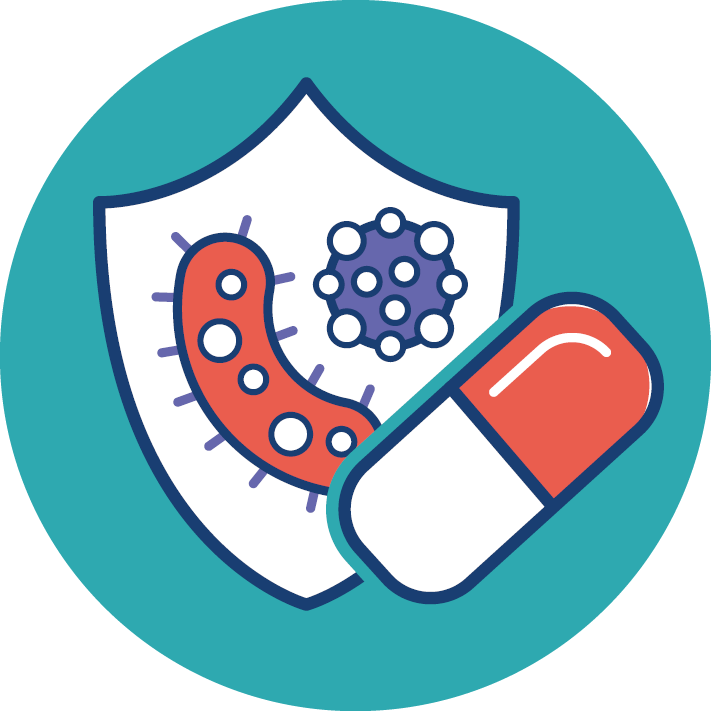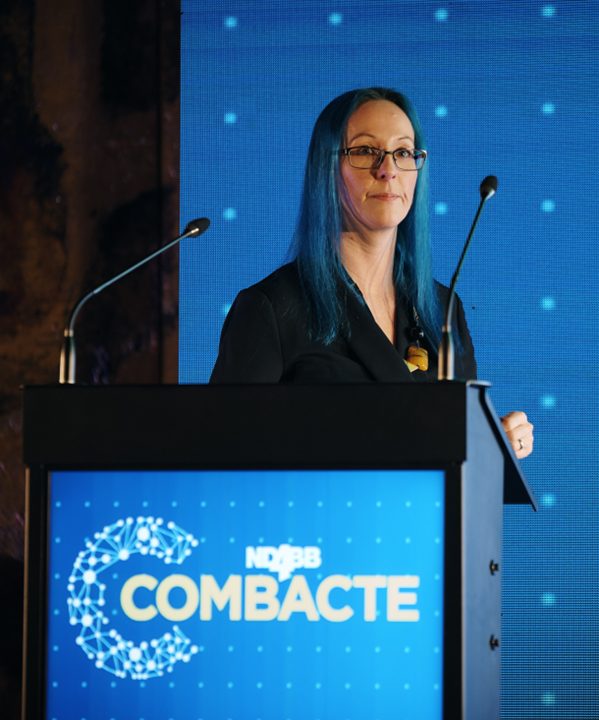
This theme focuses on reducing infections, improving diagnostics, protecting existing antibiotics, and developing new treatments to combat antimicrobial resistance (AMR).
Overview
Antimicrobials have revolutionised the treatment of infectious diseases but addressing AMR is paramount to protect these gains and maintain antibiotics as enablers for modern medicine.
Without new solutions to AMR and infection AMR-related deaths may exceed those from cancer by 2050 with estimated costs of $100 trillion, more than the sum of all global economies combined.
Our vision to address AMR uses a multipronged strategic approach focussing on:
- Driving down infections
- Using smarter diagnosis
- Protecting existing antibiotics
- Creating new, more targeted treatments
The BRC will provide a step-change to AMR research at Leeds, expanding our NIHR-funded capital infrastructure by investing in personnel and expertise.
We will take a bench-to-bedside approach that tackles AMR at multiple points within our fundamental and translational research workstreams.

Theme Lead: Prof Mark Wilcox

Emerging Theme Lead: Dr Kerrie Davies

Emerging Theme Lead: Dr Jane Freeman
WS1: Targeted AMR Solutions
WS2: Translational Pipeline for antimicrobial solutions

Lead: Prof Mark Wilcox
WS1a: Developing precision diagnostics
COVID-19 underscored the need for swift, accurate diagnosis. Drawing on pandemic expertise, we aim to enhance AMR infection diagnosis, refine patient care with targeted treatments, curb the spread of resistant organisms, and reduce inappropriate prescribing and infection rates.
This approach aims to cut costs and address disparities in testing and treatment access between community and hospital settings.
To bolster these efforts, we will establish an AMR Testing and Evaluation Centre (AMR-TEC), leveraging Leeds’ developed COVID-19 testing infrastructure. This centre will attract funding, support a wider array of diagnostic projects, and ultimately enhance patient care while combating the AMR challenge.
WS1b. Optimising antimicrobial stewardship (AMS)
Effective antimicrobial stewardship (AMS) hinges on solid evidence, frequently absent, resulting in sub-optimal or poorly executed practices.
Our goal is to produce robust evidence validating current AMS strategies and devising innovative interventions for patient and public health benefits.
We will use big data analysis to focus on developing, evaluating, and refining AMS approaches.
Collaboration with UK Health Security Agency (UKHSA), NHS Trusts, and commercial partners such as TPP, whose SystemOne is utilized by 2600 UK GP practices, will be essential to our efforts.
WS1a and b will utilise the Theme’s statistical resources for designing studies, and health economics expertise for evaluating healthcare impacts.

Lead: Prof Alex O’Neill
With microbial resistance rising and new antimicrobial development lagging, rapid creation of new treatments is vital.
Utilising our expertise in AMR, gut models, and microbiome, we aim to innovate our pipeline for antimicrobial solutions, transitioning quickly to NHS deployment.
WS2a Pre-clinical studies
We aim to broaden treatment options by accelerating the translation of antimicrobial and non-antimicrobial drug discoveries with industry collaboration, and repurposing existing antimicrobials.
Our advanced human gut models will generate dosing data for new and current antimicrobials and biotherapeutics.
Enhanced by infrastructure support, we will integrate pharmacological, genomic, and proteomic data to enrich our gut model research.
This will enable large-scale molecular studies on clinical isolates to uncover hidden resistance and develop improved diagnostic tests for evaluation in WS1.
WS2b Innovative, high throughput mini-models for the antimicrobial development pipeline
We will further develop our valued gut models with Leeds mini-models to boost capacity for screening novel compounds affecting the gut microbiome and AMR bacteria.
Initial investment in pipeline development will pay off in later years, meeting industry demand and achieving self-sustainability with funding from research councils and commercial sources.
To fast-track AMR solutions, we will integrate academic science, public engagement, industry expertise, and clinical knowledge.
This approach will foster active research teams for pre-clinical and clinical studies and aid industry collaboration, increasing our impact in yearly Industry Incubator meetings.
